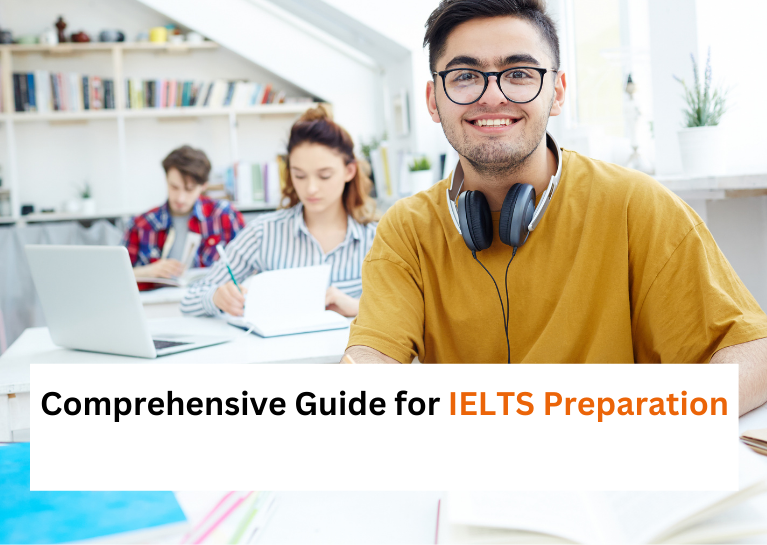Receiving a good education is very important. But it can be hard due to money issues. Scholarships give bright students a chance at learning. To get them, a strong statement of purpose for scholarship is key. This lets you show why you want to study and your goals. It is also where you share your special experiences and skills. With a clear and impactful statement, you can unlock these big opportunities.
This guide teaches everything about writing a great statement of purpose for scholarship. It explains why they matter so much. It also shows the best ways to plan and organize your thoughts. With our tips, your statement will shine among the rest.
Table of Contents
ToggleWhat is a Statement of Purpose for Scholarship?
Many scholarships require you to write a statement of purpose. This is an important essay that tells about your education so far and your future goals. It explains why you deserve the scholarship. In simple words, the statement of purpose is your chance to share your story. Your story should show your love for learning and hard work in your field of study. It should also highlight what makes you special and deserving.
Why is a Statement of Purpose for Scholarship Important?
Many students apply for scholarships. But the money is limited. So committees must choose carefully. Your grades and test scores show your abilities. But a strong statement of purpose for scholarship tells more about you. With it, you can:
- Tell your story beyond numbers: Grades show part of you. But your SOP lets you share stories from life. It shows who you are, what inspires you, and dreams for the future.
- Show your fire for learning: A strong statement of purpose for scholarship proves you really care about this subject. It tells the team you want more than a degree. You’re following a passion, driven by excitement.
- Paint your future vision: Here you can explain your big hopes for school and work. Showing a clear path ahead convinces them your goals match the scholarship’s purpose.
- Highlight what makes you unique: This SOP lets you share accomplishments outside class. Things like leadership, special skills, or life events that shaped your education journey.
What Is the Difference Between a Personal Statement and a Statement of Purpose?
Personal statements and statements of purpose are both essays for college applications. However, there are some important differences. A personal statement is all about you, your story, and your goals. But a statement of purpose focuses more on your academic interests and career path. A personal statement:
- Focus: What is the main point here? A personal statement shares big parts of your life. It shows your experiences, beliefs, and values. This gives a picture of who you are.
- Specificity: A statement of purpose is different. It focuses just on your goals for studies. It talks about your interests in research and future plans for a school subject.
- Application: Personal statements are used when applying to college. Statements of purpose are needed for scholarship applications or graduate programs.
Types of the Different Statements of Purpose (SOP):
There are different types of SOPs. The type depends on the scholarship or program. Here are some examples:
- Undergraduate Scholarship SOP: This SOP focuses on your high school achievements. It looks at your field of study and future plans.
- Graduate School SOP: This one explores your research interests and possible thesis topics. It covers your experience in your chosen field.
- Professional Degree SOP: For degrees, like medicine or law, highlight work experiences. Discuss volunteer work and motivations for that profession.
Format of SOP for Scholarship
There’s no universally prescribed format for a scholarship SOP. However, most SOPs follow a similar structure:
- Introduction: Hello, my name is [Your Name]. I’m applying for the [Scholarship Name]. I’m studying [Academic Program/Field] at [University/College Name].
- Academic Background: I’ve done well in school. I got good grades and awards. I took relevant classes like [Course Names]. I also did research projects on [Research Topics].
- Goals and Aspirations: My goal is to [Career Goal]. This scholarship will help me get closer to that dream. I want to use my skills to [Scholarship’s Objectives].
- Motivation and Experiences: I became interested in this field when [Experience that sparked interest]. I’ve also [Relevant Experience 1] and [Relevant Experience 2] to gain more knowledge.
- Future Plans: With this scholarship, I’ll be able to [How scholarship will help achieve goals]. In the future, I hope to a long-term contribution to field].
- Conclusion: I’m really passionate about [Field/Program]. I think I’d be a great fit for this scholarship because [Reasons for suitability]. Thank you for considering my application.
Statement of Purpose for HEC Scholarships
The Higher Education Commission (HEC) of Pakistan offers many respected scholarships. These are for Pakistani students studying higher education in Pakistan or other countries.
Also Check: Which Country Is Best for Pakistani Students to Study Abroad?
When applying for an HEC scholarship, your SOP must fit their rules precisely. Learn what the scholarship wants to achieve. Then, show how your academic goals match their mission. For example, if the scholarship values research, tell about your research experience and how you can contribute to your field.
Tips and Tricks for Writing the Best Statement of Purpose for Scholarship
Writing a great statement of purpose for scholarship needs planning and hard work. Here are some tips to help you:
- Start Early: Don’t wait till the last day. Give yourself lots of time to think, research, and make changes.
- Research the Scholarship: Learn about what the scholarship wants. Understand their goals and any rules for the statement.
- Know Your Audience: Write your statement for the people choosing the winner. Highlight parts of your life and goals that match what they care about.
- Be Specific and Concise: Don’t use general statements. Use clear words and real examples to show your achievements and dreams.
- Focus on Your Achievements: Don’t just list what you’ve done. Explain the challenges you faced and how you made a difference.
- Show Your Excitement: Allow your eagerness for your chosen field to radiate through. Utilize clear, lively words to express your authentic fascination and dedication.
- Narrate Your Journey: Craft an engaging story that highlights your distinct experiences and driving forces.
- Review and Refine: Ensure your statement is free from errors in grammar or spelling. Ask someone else to review it for clarity and flow.
- Maintain Professionalism: Avoid casual or informal language. Use formal yet engaging wording throughout
DO’s and Don’ts of Writing an SOP For Scholarship
Do:
- Highlight your strengths and achievements.
- Quantify your accomplishments whenever possible (e.g., awards received, GPA).
- Demonstrate a clear understanding of the specific program or scholarship.
- Proofread meticulously.
- Show your personality and passion.
- Tailor your SOP to each scholarship application.
Don’t:
- Exceed the word limit.
- Focus on irrelevant information.
- Write in a generic or impersonal tone.
- Include grammatical errors or typos.
- Copy someone else’s SOP.
- Plagiarize.
How to Organize a Statement of Purpose for Scholarship
Making your Statement of Purpose for scholarship easy to follow is very important. A good SOP usually tells your story in order:
1. Introduction: (1-2 paragraphs)
- Say who you are and which scholarship you want.
- Tell what you plan to study or your field.
2. Academic Background: (2-3 paragraphs)
- Talk about your good grades, awards, and scholarships.
- Explain classes that helped prepare you for this field.
- Briefly describe any research work you did (if any).
- The key parts of your SOP come next. You need to grab the reader’s interest right away. Be clear and focused.
3. Goals and Aspirations: (2-3 paragraphs)
- What do you want to achieve in your studies and career? Tell us clearly.
- How do these goals match the scholarship’s purpose? Explain how they align.
- How will this scholarship help you reach your long-term dreams? Discuss its importance.
4. Motivation and Experiences: (2-3 paragraphs)
- What made you interested in your chosen field? Share your story.
- Talk about relevant activities (internships, volunteer work, personal projects) that show your passion.
- Mention any leadership skills or qualities that relate to your field.
5. Future Plans: (1-2 paragraphs)
- How do you plan to use this scholarship to reach your academic and career goals?
- Briefly discuss how you will contribute to your field in the future.
6. Conclusion: (1 paragraph)
- Tell again why you love your area of study. Explain why you are a good fit for this scholarship.
- Say thank you to the people reviewing applications. You are grateful they looked at yours.
Conclusion
Your statement of purpose for scholarship is important. It lets you show why you are a good fit. Follow these tips to write a strong essay. Show your skills and why you want to learn. Tell your story in a clear way. Explain your goals and dreams. With focus and effort, you can shine. The scholarship can help you reach your educational goals. Make your essay stand out. Let readers see your passion and hard work. Use simple words. Keep sentences short but ideas complete. With care and thought, you can make a great impression.
FAQs
How Do You Write a Statement of Purpose for Scholarship Sample?
- I am [Your Name]. I have done [Your Academic Achievements]. My goal is to [Your Career Goal].
- I need this scholarship. It will help me reach my dreams.
- I have skills like [Your Skills]. I also have experience in [Your Experiences]. These makes me a good fit.
- When I was [Challenge You Faced], I learned [Lessons From The Challenge]. This shaped who I am today.
- I promise to work hard. The scholarship will allow me to focus fully on [Your Goals].
What is the Difference Between a Scholarship SOP and General SOP?
A statement of purpose for scholarship explains why you deserve help to pay for school. It talks about the great things you did. It says what you want to do. It shows how the scholarship would let you reach your goals.
A general SOP is different. It helps you get into a school program. This SOP tells about your classes and grades. It says what you want to study. It explains why you want that program and school.
What Is the Difference Between SOP for Doctoral and Master’s Programs?
- A Doctorate SOP wants details on your past research tasks. It needs details on your good grades too. It also needs you to share what research you want to do. This shows you are ready to study at the highest level.
- A Master’s SOP wants info on your grades and work experience. It needs to know how the program fits your job goals. Details on your projects or little research tasks can help too.
What Is a Statement of Purpose in Hec Scholarship?
Getting a scholarship from HEC (Higher Education Commission) is important. To apply, you have to write a statement of purpose (SOP). An SOP is where you explain your goals for studies and career. You describe why you deserve the scholarship. You also explain how the scholarship will help you achieve your plans. In an SOP, you share details about your education so far. You tell about your good results and special achievements. You write about the topics you want to research. And you describe your plans after completing your studies.
How Do You Write a Good Scholarship Statement?
- Keep your words simple and straightforward. Highlight your skills and successes.
- Adjust your statement to match the scholarship’s exact needs.
- Give real-life stories to back up your claims.
- Display your enthusiasm and dedication to your study area or career dreams.
- Double-check for mistakes. Make sure your statement flows smoothly.
What is the SOP for a UK scholarship?
Do you want to study in the UK? Getting a scholarship can help. The Statement of Purpose (SOP) is important. It shows why you deserve the scholarship. You must explain your academic success so far. Say what you have achieved and learned. Also, share your future goals. Describe how the scholarship will help you reach those goals. Show how you are a good fit for the program. Follow all the instructions given by the scholarship provider carefully. Make sure you meet all their criteria.
Also Read: SOP for Australian Student Visa.







